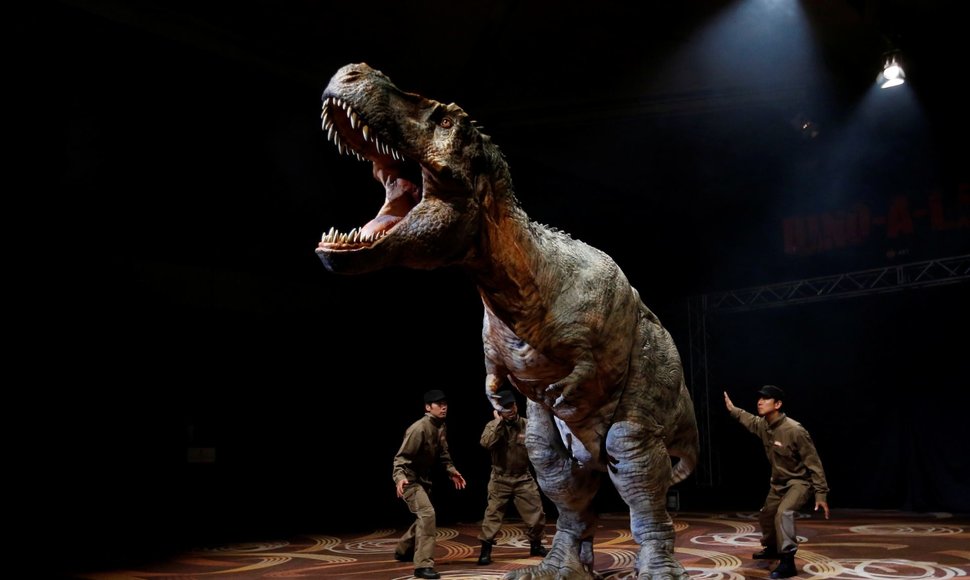Challenges to organisation survival
64 million years ago, the dinosaurs went extinct due to changes in the ecosystem. That said, species of small dinosaurs learned to fly and transformed into birds, which are still alive today.
The current major organisations could be compared to the great dinosaurs. The economic, political and global environments are posing grave threats to their survival. In order to endure, they will have to learn to fly – to offer services remotely or trade online. However, not all dinosaurs are equally capable of lift off – the larger and heavier, the harder it is to leave the ground and spread your wings to fly.
It is precisely these great dinosaurs who await a return to the previous ecosystem, the previous economic, political and competitive conditions. Despite how hope dies last, it is unlikely that the old ecosystem will return. One way or another, the great ones will have to learn to fly as well – that is, to operate remotely.
It is worth adding that numerous small dinosaurs, who never managed to learn to lift off, have already gone extinct – these are the small businesses that remained closed for a prolonged period of time and went bankrupt. We will be able to see the real extinction rate statistics at the end of the year.
How an organisation collapses
No one, probably not even the most famous business futurists – could have predicted such systemic changes. Danger continues to loom even above the very largest dinosaurs – due to the sudden changes, they have landed in their own trap. Experience shows that large organisations are downsizing because they can’t handle their size anymore – the dinosaur begins consuming its own tail. Or, in other words, the organisation “consumes” its own profits.
But how are an organisation’s profits “consumed”? The larger the business, the more inclined to see the staff’s work. Often, the thought process is that if an employee arrived at work, they are “working” because they are visible. The word “working” is intentionally left in quotation marks because, first of all, we should be discussing how a staff member should create value, not just work. But how do you see and measure staff effectiveness and efficiency when the team is dispersed and operating from home? How do you see the number of tasks performed and what the cost of each task is?
That’s the trap for the great dinosaurs – secret inefficiencies, unmeasurable by any company key performance indicators (KPI). If a company’s operational KPI is in euro, then the process KPI is units and time. Thus, process-oriented organisations, which monitor the activities done by every staff member, can quickly transform. And it does not matter what size the company in question is – it quickly finds its bearings when profits are lost and urgent decisions need to be made because the KPIs of all processes are visible and clearly measurable.
Organisation future trends
But in the end, the question of when the dinosaurs will go extinct remains unanswered. However, it is fairly obvious as to why it could happen.
The main reasons for extinction:
- Inability to physically serve clients because not all businesses are able to transition their business online;
- The websites of small businesses are filled with algorithm mistakes, which leaves them invisible in online searches, making it difficult to attract enough customers;
- Organisations, which direct their operation toward staff functions, are mired in process chaos, cutting into the organisation’s profits.
However, birds have endured to this day – a species of dinosaur that learned to fly. You can be certain that some organisations will definitely endure. It will be those who manage to guide their businesses based on the KPI of their business processes, where:
- Every wasted activity is visible;
- Operational decisions are made with minute precision;
- Every staff member’s contribution to profit generation is visible;
- The opportunities offered by the online domain are quickly mastered.
The organisation of the future is a virtual organisation, which has learnt to rise up and survey from a bird’s eye view all the favourable opportunities and possibilities.
You can learn about transforming a company into one that is process-oriented on the following website.
Dr. Diana Satkutė has a doctorate in the social sciences, is a business redesign and optimisation expert with more than 17 years of leadership experience. She was awarded with a certificate for leadership excellence by UAB Samsonas in 2006. For the past nine years, she has been consulting with companies in matters of process optimisation.













